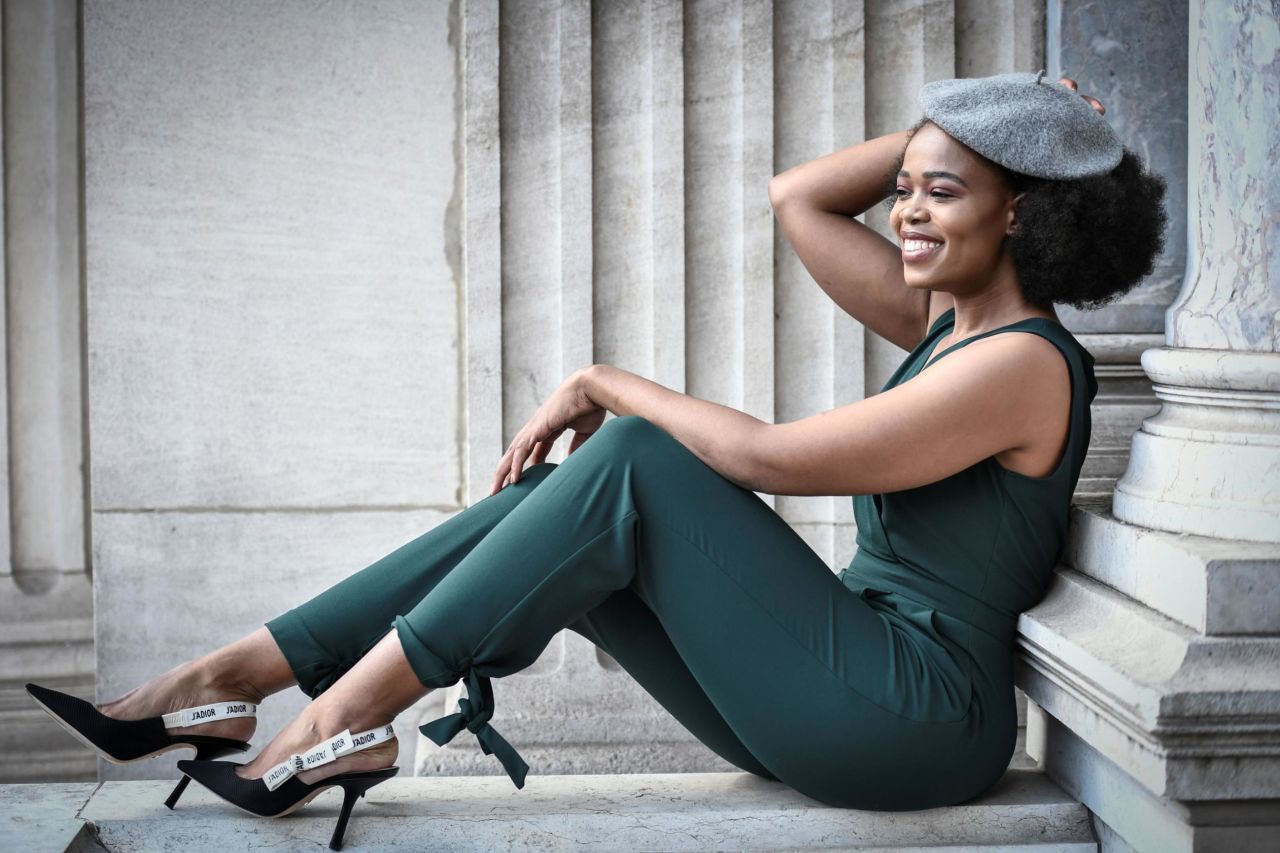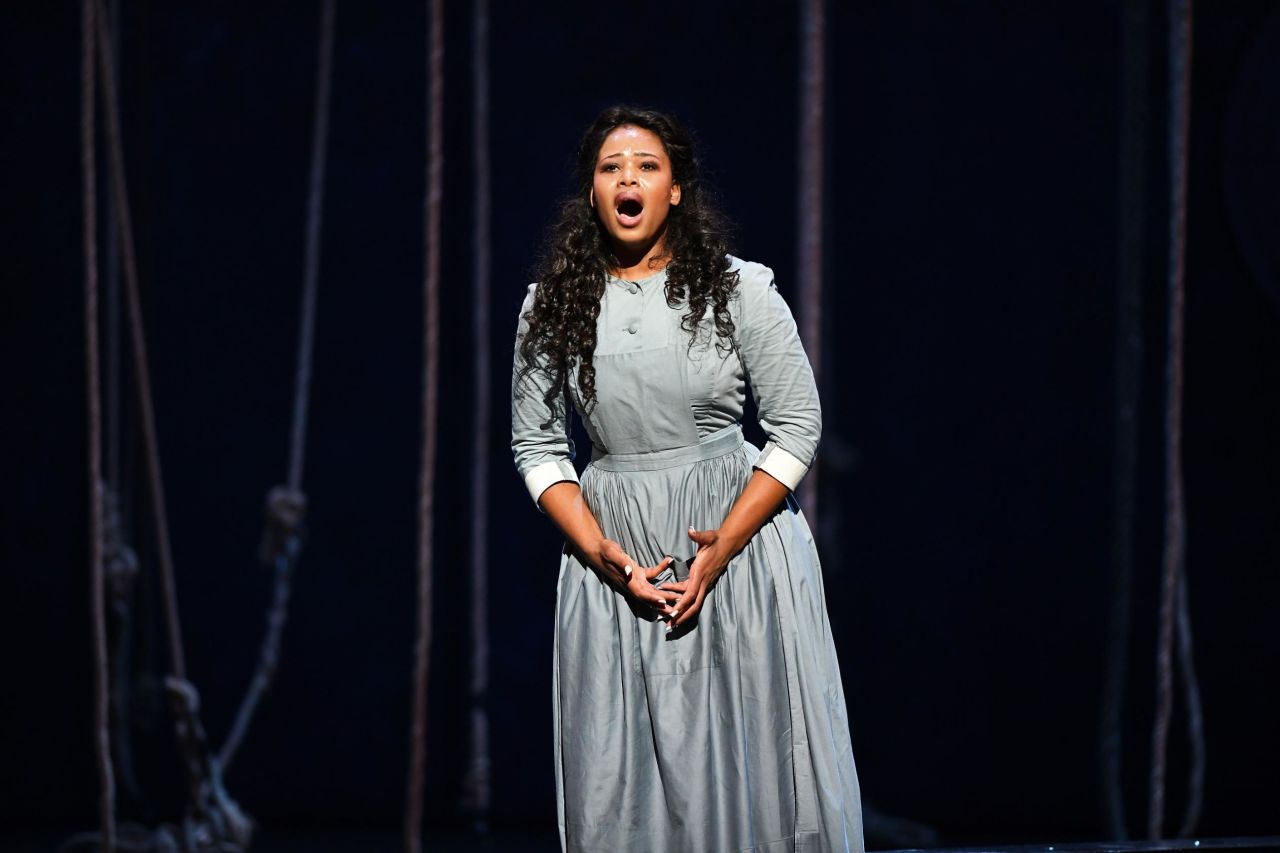CNN
—
“Pretty, are you sitting down?” South African soprano Pretty Yende was performing in Vienna last December when she received a call from her manager. She had just been booked for the biggest gig of her life: a performance at the coronation of King Charles III.
On May 6, the world will witness the crowning of Charles III at Westminster Abbey, in London. The 2,000-strong congregation will include royalty and global leaders, and 12 new pieces of music have been commissioned to mark the occasion.
As one of three soloists at the ceremony, it’s thought that Yende is the first African to be invited to perform solo at a British coronation.
“I was overwhelmed, shocked, happy. All the emotions were just rushing in,” she said, remembering the invitation.
But given the 38-year-old’s remarkable journey, it’s surprising that she was surprised at all.
The story of how Yende reached the pinnacle of her career is an inspirational one. Born in a tiny, rural town formerly known as Piet Retief, now eMkhondo, in Mpumulanga, South Africa, she had a happy, conventional religious upbringing. Her most direct link to music was church hymns.
Yende says that as a shy child, she always wanted to please her family. When her grandmother first invited her to sing in public, she knew how uncomfortable it would be to stand in front of people, but she obliged. It became the first step on the road to performing in front of massive audiences.
Yende never considered a career in music – she intended to study accountancy at university. Then she saw opera for the first time on TV at the age of 16. “Hearing this music and the power of it, sounded like something supernatural. I did not believe human beings could do it,” she recalled.
“I remember recording it and imitating it,” she said. “I would play the recording the whole day. My gosh, my family were in trouble, because I wouldn’t stop practicing and shouting.” Her parents allowed her to study music at university on the condition that she would switch back to an accountancy degree if singing didn’t work out.
She started making a name for herself in South Africa while still a student at the University of Cape Town, and in 2011, Yende graduated from the Young Artists program at the Accademia at the Teatro alla Scala, in Milan, Italy, and began entering opera competitions.
“The very first opera competition that I did was in Vienna, Austria, where I won everything possible,” she remembered. “They called my name so many times I was like, ‘No, God please let this one go to someone else.’ I felt unworthy … hearing the kind of finesse that my peers had.”
Her career took off internationally in 2013, with her debut at the Metropolitan Opera House in New York. Yende has since interpreted roles in Puccini’s “La Bohème,” Mozart’s “The Marriage of Figaro” and Rossini’s “Le comte Ory,” while performing in major opera houses in Milan, Paris and London.
Yende’s career has involved a number of firsts, including becoming the “first Black person to have a new production of ‘La Traviata’ in Opera Garnier in Paris,” in a production conceived especially for her, according to an interview with Observer.

It has not been all plain sailing. She continues to address the question of opera’s Eurocentrism, and hopes to use her fame and talent as an opportunity to break stereotypes.
“The biggest challenge has always been being the different one in the room. When I was the first Black in the Accademia of La Scala it was a bit uncomfortable,” she remembered.
“Sometimes I would enter the rehearsal room, and I could see in the room looks like, ‘Why are you here?’ And I would just smile. But once I start making music, all of us in that room agreed that I’m not there by mistake.”
Opera has featured strongly in the life of King Charles, who is a patron of over a dozen musical organizations. In 1981, when the then-prince married the late Princess Diana, Kiri Te Kanawa, an opera singer from New Zealand, performed at the wedding. On May 6, the program will also feature performances from bass-baritone Bryn Terfel and baritone Roderick Williams.
The coronation will not be the first time King Charles has watched Yende perform; he saw the soprano sing at the Royal Philharmonic Orchestra’s 75th anniversary gala, held at Windsor Castle in April 2022.
Nevertheless, the invite to the coronation is a rare honor. “It’s historic, it’s generational,” Yende said.
She will perform “Sacred Fire,” a new work by classical and film composer Sarah Class that Buckingham Palace has said “evokes a bridge between the angelic and human realms” with its imagery from the Bible.
“It’s a vision of the freedom and protection of all beings, and of the abundance and beauty of our natural world,” said Class in a statement.

Over 26 million Britons watched Queen Elizabeth II’s funeral and more than 20 million people in the UK tuned in to watch her coronation in 1953, according to the BBC.
For the new King this is a defining moment: a historic spectacle, but also an opportunity to reinforce the Crown’s relationship with the British people and the Commonwealth.
There has been opposition from some who argue that someone from one of Britain’s former colonies should not be singing at the coronation, but Yende is unperturbed.
“My gift is a place where … people from all walks of life are able to find a place of healing, and reconciliation to move forward into the future,” she said.
There will be many millions watching the coronation from around the world, including Yende’s family in Mpumalanga. It will be a historic moment for the continent, but most importantly it will be a cherished occasion for the singer who so nearly became an accountant.
“I have feelings of excitement and joy for this upcoming engagement, just like any other,” she says. “I’m preparing and really looking forward to it.”